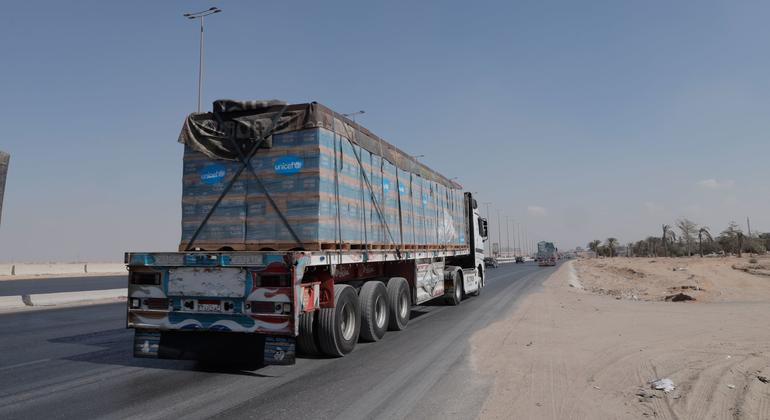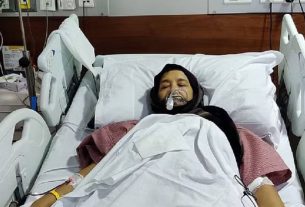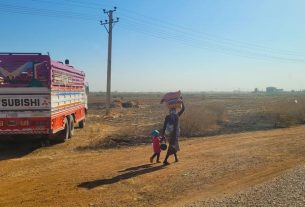As humanitarians continued to echo the UN Secretary-General’s urgent calls on Israel to open a safe aid delivery corridor, Gaza will soon run out of basic supplies, according to UN agencies on the ground, who raised alarms about a looming unprecedented humanitarian catastrophe.
Shortly after the outbreak of violence on 7 October, Israel shut all borders with Gaza, and the UN has been unable to replenish its stocks of lifesaving aid since then. As supplies in the enclave shrank against the backdrop of daily bombardment, UN agencies, partners, and nations have rushed to dispatch aid.
The Gaza Strip prior to the current escalation.
Here’s what’s in the convoy:
Bare essentials
Over the weekend, Egypt’s El Arish International Airport, which normally serves Palestinians travelling to Mecca, Saudi Arabia, for the annual Hajj pilgrimage, became a hive of humanitarian activity.
Hundreds of tonnes of essential goods, from ready-to-eat food to latex gloves for emergency surgeries, landed in aircraft dispatched by UN agencies, partners, and nations, including Jordan, Türkiye, and the United Arab Emirates, at the airport, located 45 km (28 miles) from Gaza’s border.
The much-needed donations were unloaded and transferred into border-bound trucks. Added to the convoy was Egypt’s contribution of 100 trucks carrying 1,000 tonnes of aid.
They include UN agency deliveries of pallets of tents, blankets, and a range of medicines.
In addition, the UN humanitarian affairs agency, OCHA, reported plans to provide 300,000 people with emergency kits containing essential items, and the UN sexual and reproductive health agency, UNFPA, had at the ready supplies to promote women’s hygiene, including 3,000 dignity kits.
Near the aid convoy, media reports observed rows of ambulances and emergency health workers waiting to tend to injured Gazans.

Medical supplies from the World Health Organization’s logistics hub in Dubai arrive in Egypt.
Medical supplies
A planeload of medical supplies was dispatched by the World Health Organization (WHO) to replenish its pre-positioned stocks in Gaza, which have dwindled to dangerously low levels. In the past days, the UN health agency sent two shipments from its logistics hub in Dubai.
Every hour these supplies remain on the Egyptian side of the border, more girls and boys, women and men, especially those vulnerable or disabled, will die – WHO Director-General
One landed in Beirut, Lebanon, carrying surgical and trauma medicines and supplies to tend to 800 to 1,000 injured patients, serving ever-growing needs as clashes escalate along its border with Israel.
That followed the weekend delivery of 78 cubic metres of emergency aid to El Arish Airport, enough supplies to help more than 300,000 Palestinians. To help to secure access through the Rafah border area, WHO Director-General Tedros Adhanom Ghebreyesus met last week with Egyptian President Abdel Fattah El-Sisi, who agreed to its request.
The ready-to-be-delivered shipment contains basic health essentials alongside emergency supplies. These include enough trauma medicines and health supplies to treat 1,200 wounded patients and 1,500 patients suffering from heart diseases, hypertension, diabetes, and respiratory problems as well as trauma “pouches” ready to treat 235 wounded people.

Medical supplies which were already in Gaza are being distributed by UNICEF.
Food
Also grappling with shortages, the UN World Food Programme (WFP) has sent supplies to replenish its almost exhausted stocks.
Early Monday morning, a WFP-chartered aircraft landed at El Arish Airport, delivering 22 tonnes of humanitarian relief, including 15 tonnes of fortified biscuits and two mobile storage units to address the shortages in Gaza, according to the UN Humanitarian Air Service (UNHAS).
The UN food agency launched an emergency operation to get food, water, and other essential supplies to Gaza and the West Bank, and is also awaiting five trucks carrying, among other things,100 tonnes of food parcels.

Food is rapidly running out in Gaza.
Water and fuel
For the fifth consecutive day, the enclave had no electricity and residents have “severely limited access to clean drinking water”, according to the UN relief agency for Palestine refugees, UNRWA, which operates in Gaza and the West Bank.
What is really key is to lift the siege; the UN should be allowed to bring in much-needed supplies. – UNRWA spokesperson
To prepare for the possible opening of a humanitarian corridor to bring aid supplies to the Strip, an advance team has been sent to Egypt, the latest UNRWA situation report said.
Fuel is “absolutely critical” for the desalination plant and water pumping stations, according to UNRWA. Fuel deliveries are also waiting to fill fast shrinking supplies that have been used to power emergency generators, including in hospitals, throughout Gaza.
At the same time, the UN Children’s Fund (UNICEF) in Egypt dispatched trucks to the Egyptian Red Crescent Society, its partner on the ground, to expand UNICEF support in Gaza, with such essential items as water, mobile latrines, and dignity kits to address the immediate needs of 150,000 people.
Meanwhile, OCHA is advancing plans at its service hub in Rafah with a supply chain from local markets and agency stocks, including fuel, bottled water, hygiene kits, and water storage bladder tanks. The agency was also reviewing and checking the feasibility of water trucking operations.

Water is in short supply across the Gaza Strip.
As the siege continues, UNRWA has been unable to bring in any supplies since 7 October, said agency spokesperson Juliette Touma. Amid Israel’s evacuation order over the weekend, UNRWA had relocated its centre of operations to southern Gaza, nearer to the Rafah border crossing.
“What is really key is to lift the siege,” she said. “The UN should be allowed to bring in much-needed supplies.”



